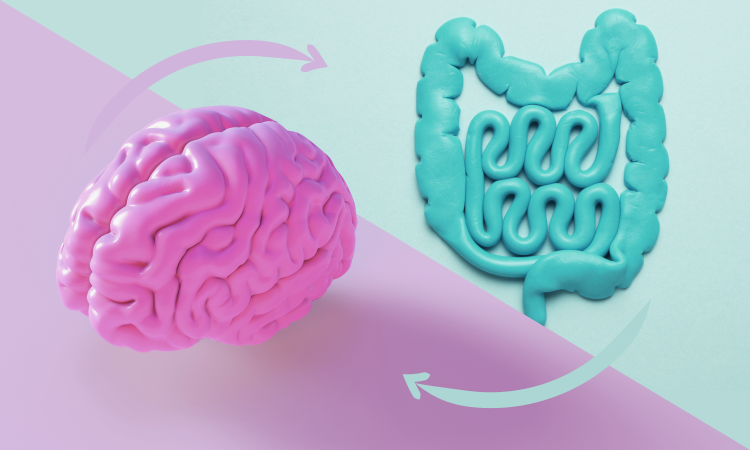Introduction
Attention Deficit Hyperactivity Disorder (ADHD) is a neurodevelopmental disorder that affects millions of individuals worldwide. It is characterized by symptoms like inattention, hyperactivity, and impulsivity, which can significantly impact a person’s daily life. While the exact cause of ADHD is not fully understood, researchers have been exploring the role of the gut-brain connection in the development and management of this condition. In recent years, there has been growing evidence suggesting a link between ADHD and digestive issues. This has shed light on a potential avenue for relief and management. In this article, we will delve into the gut-brain connection, how it relates to ADHD, and explore ways to find relief through dietary and lifestyle changes.
The Gut-Brain Connection: A Complex Network
The gut-brain connection refers to the intricate communication system between the gastrointestinal tract (the gut) and the central nervous system (the brain). This connection is facilitated by the enteric nervous system, often referred to as the “second brain,” which is a complex network of neurons lining the gut. Additionally, the gut houses trillions of bacteria, collectively known as the gut microbiome. This microbiome plays a crucial role in digestion, metabolism, and overall health.
Recent research has revealed that the gut and brain communicate bidirectionally through neural pathways, hormones, and immune molecules. This means that what happens in the gut can influence the brain and vice versa, leading to a growing interest in the potential impact of gut health on neurological conditions like ADHD.
ADHD and Gut Health: Understanding the Link
- Inflammation and Immune Response: Studies have suggested that individuals with ADHD may exhibit higher levels of inflammation markers in their bodies. Chronic inflammation can disrupt the gut lining, leading to intestinal permeability, commonly known as “leaky gut.” When the gut barrier is compromised, it allows toxins and undigested food particles to enter the bloodstream, potentially triggering immune responses and further inflammation. This systemic inflammation might contribute to the development or exacerbation of ADHD symptoms.
- Dysbiosis: Dysbiosis refers to an imbalance in the gut microbiome, where harmful bacteria outnumber beneficial ones. Research has indicated that individuals with ADHD may have an altered gut microbiome composition compared to those without the condition. Dysbiosis can affect the production of neurotransmitters like serotonin and dopamine, which play a critical role in mood regulation and attention.
- Nutrient Absorption: Individuals with digestive issues may experience difficulty absorbing essential nutrients from their food. Nutrients such as omega-3 fatty acids, zinc, magnesium, and iron are vital for brain health and cognitive function. Deficiencies in these nutrients could contribute to ADHD symptoms or make them more pronounced.
Finding Relief: The Role of Diet and Lifestyle
While more research is needed to establish a definitive link between ADHD and digestive issues, some individuals with ADHD have reported improvements in their symptoms after addressing gut health. Here are some strategies that may help:
- Adopting a Balanced Diet: Focus on a nutrient-rich diet with plenty of fruits, vegetables, whole grains, and lean proteins. Minimize processed foods, sugar, and artificial additives, as they can negatively impact gut health.
- Probiotics and Prebiotics: Probiotics are beneficial bacteria that can help restore a healthy gut microbiome. Prebiotics, on the other hand, are non-digestible fibers that nourish these beneficial bacteria. Incorporate probiotic-rich foods like yogurt and kefir and consume prebiotic foods such as garlic, onions, and bananas.
- Identify Food Sensitivities: Some individuals with ADHD may have sensitivities to certain foods. Consider an elimination diet or work with a healthcare professional to identify potential trigger foods and allergens.
- Omega-3 Fatty Acids: Omega-3s are essential for brain health and may have a positive impact on ADHD symptoms. Include fatty fish, flaxseeds, and walnuts in your diet to boost your omega-3 intake.
- Stress Reduction: Chronic stress can negatively affect gut health and exacerbate ADHD symptoms. Practice stress-reduction techniques such as mindfulness, yoga, or meditation.
- Regular Exercise: Physical activity has been shown to improve mood and focus, potentially benefiting individuals with ADHD.
Conclusion
While the gut-brain connection and its impact on ADHD are still being studied, there is growing evidence suggesting a link between digestive issues and this neurodevelopmental disorder. Addressing gut health through dietary and lifestyle changes may relieve individuals with ADHD. As always, it is essential to consult with a healthcare professional before making significant changes to one’s diet or treatment plan. Future research in this area will hopefully provide more insights into the connection between ADHD and gut health. This will lead to more targeted and effective management strategies for those affected by this condition.




